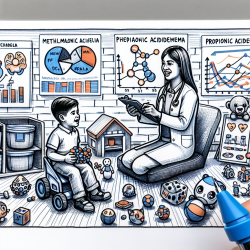Introduction
The issue of medication overuse is a significant concern in low- and middle-income countries (LMICs), as highlighted in the research article "Overuse of medications in low- and middle-income countries: a scoping review" by Loai Albarqouni et al. The study reveals that medication overuse is prevalent across various drug classes, leading to patient harm and increased healthcare costs. This blog aims to guide practitioners in enhancing their skills by implementing research findings and encouraging further exploration into this critical issue.
Understanding the Extent of Medication Overuse
The research indicates that medication overuse is a widespread issue in LMICs, with estimates ranging from 7.3% to 98.2% across different studies. Commonly overused medications include antimicrobials, psychotropic drugs, proton pump inhibitors, and antihypertensive drugs. The drivers of overuse include limited knowledge of the harms of overuse, polypharmacy, poor regulation, and financial influences.
Implementing Research Outcomes
Practitioners can take several steps to address medication overuse in their practice:
- Enhance Knowledge: Stay informed about the latest research and guidelines regarding medication use. Attend conferences, webinars, and workshops to gain insights into best practices for prescribing medications.
- Educate Patients: Provide patients with information about the risks associated with medication overuse. Encourage them to ask questions and be involved in their treatment decisions.
- Review Prescriptions: Regularly review patient prescriptions to ensure they align with current guidelines and are necessary for the patient's condition.
- Collaborate with Peers: Engage in discussions with fellow practitioners to share experiences and strategies for reducing medication overuse.
- Implement Deprescribing Initiatives: Consider deprescribing as a strategy to reduce unnecessary medications, especially in elderly patients who are more vulnerable to polypharmacy.
Encouraging Further Research
While the current research provides valuable insights, there is a need for further studies to develop and evaluate potential solutions to reduce medication overuse. Practitioners can contribute to this effort by:
- Participating in Research: Collaborate with research institutions to participate in studies that explore the drivers and solutions for medication overuse.
- Advocating for Policy Changes: Work with policymakers to advocate for regulatory reforms that address the root causes of medication overuse.
- Sharing Success Stories: Document and share successful interventions within your practice to inspire others and contribute to the broader knowledge base.
Conclusion
Addressing medication overuse in LMICs requires a concerted effort from practitioners, researchers, and policymakers. By implementing the outcomes of current research and encouraging further exploration, practitioners can play a pivotal role in reducing medication overuse and improving patient outcomes. To read the original research paper, please follow this link: Overuse of medications in low- and middle-income countries: a scoping review.










